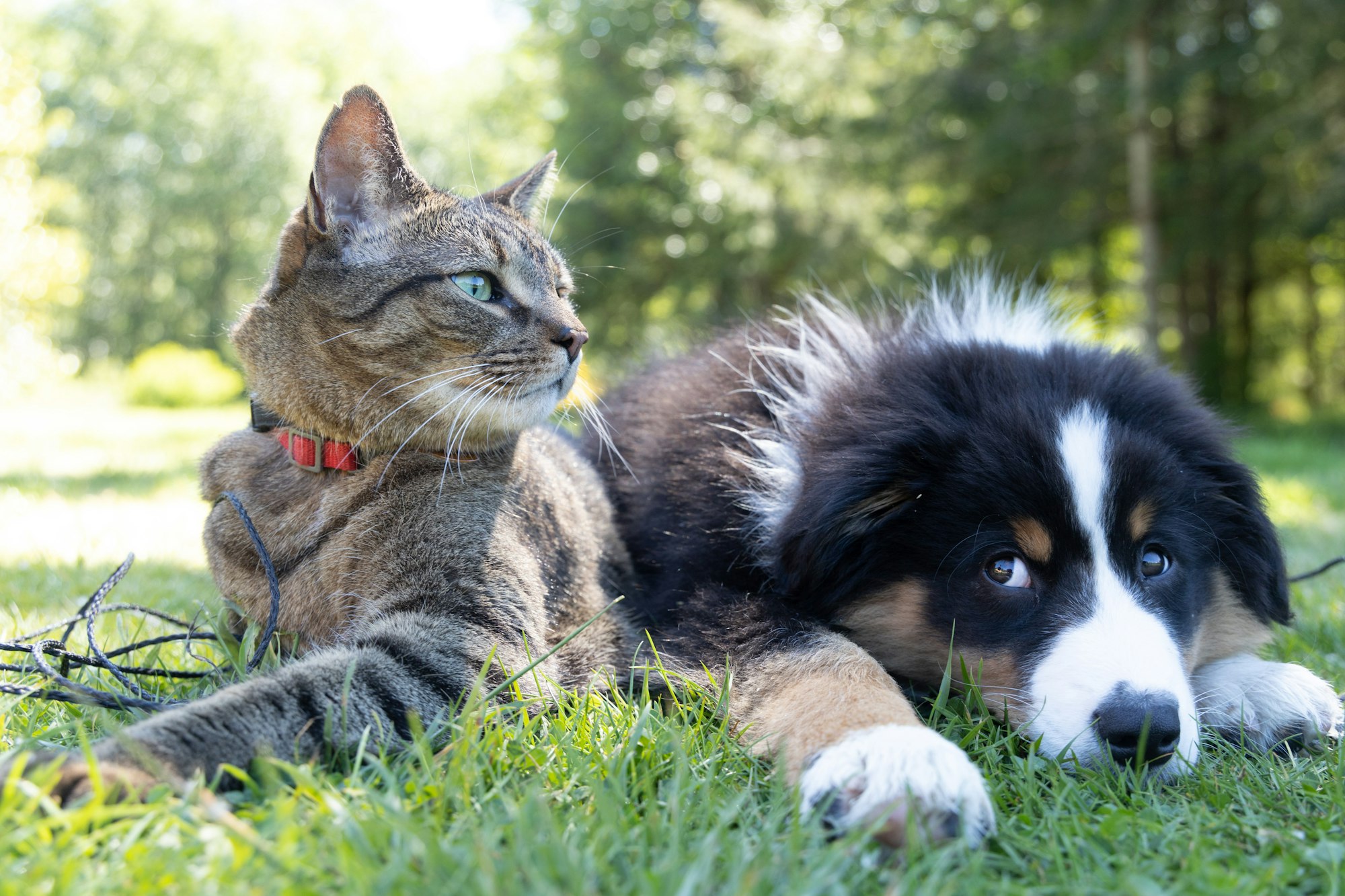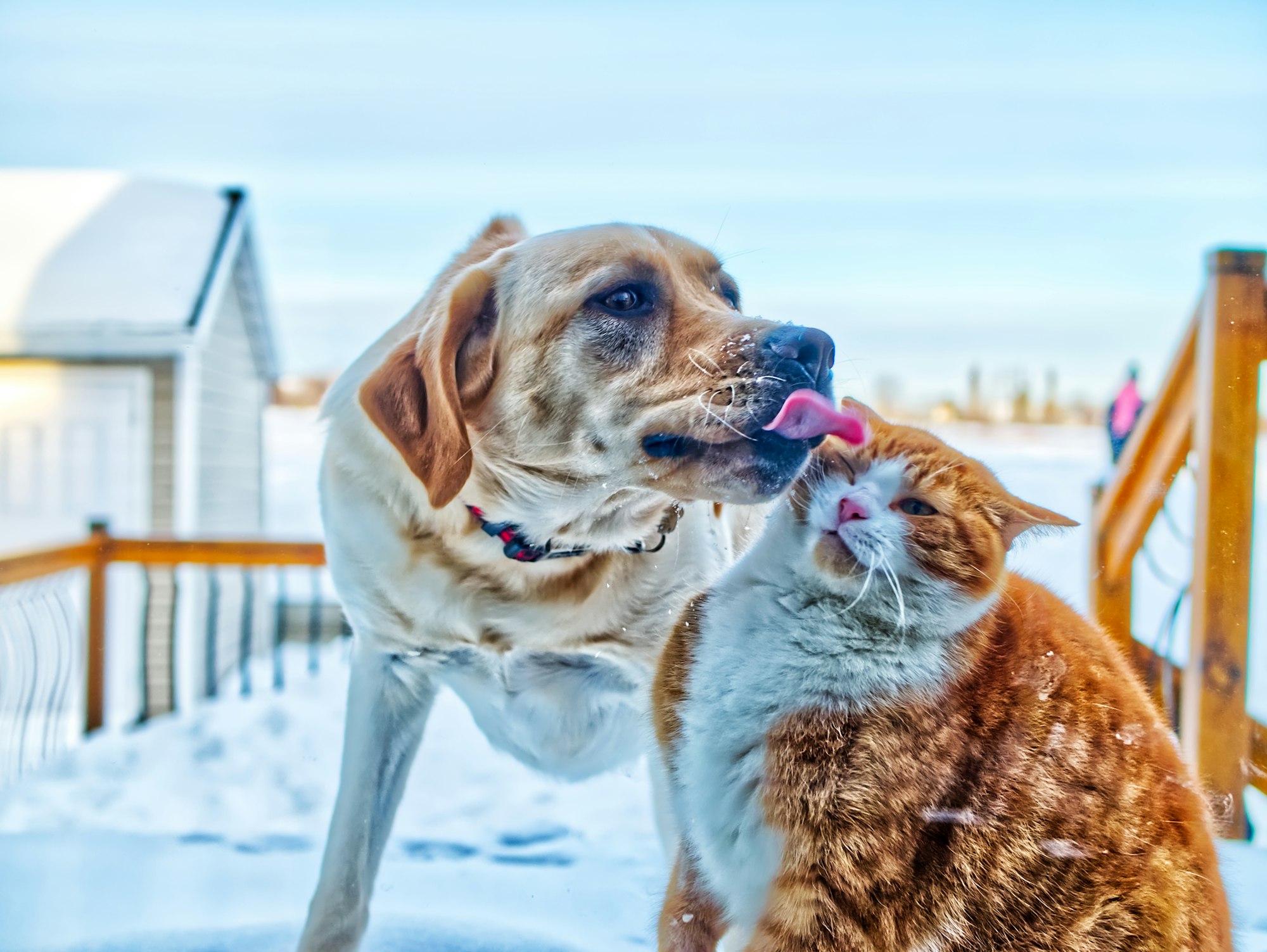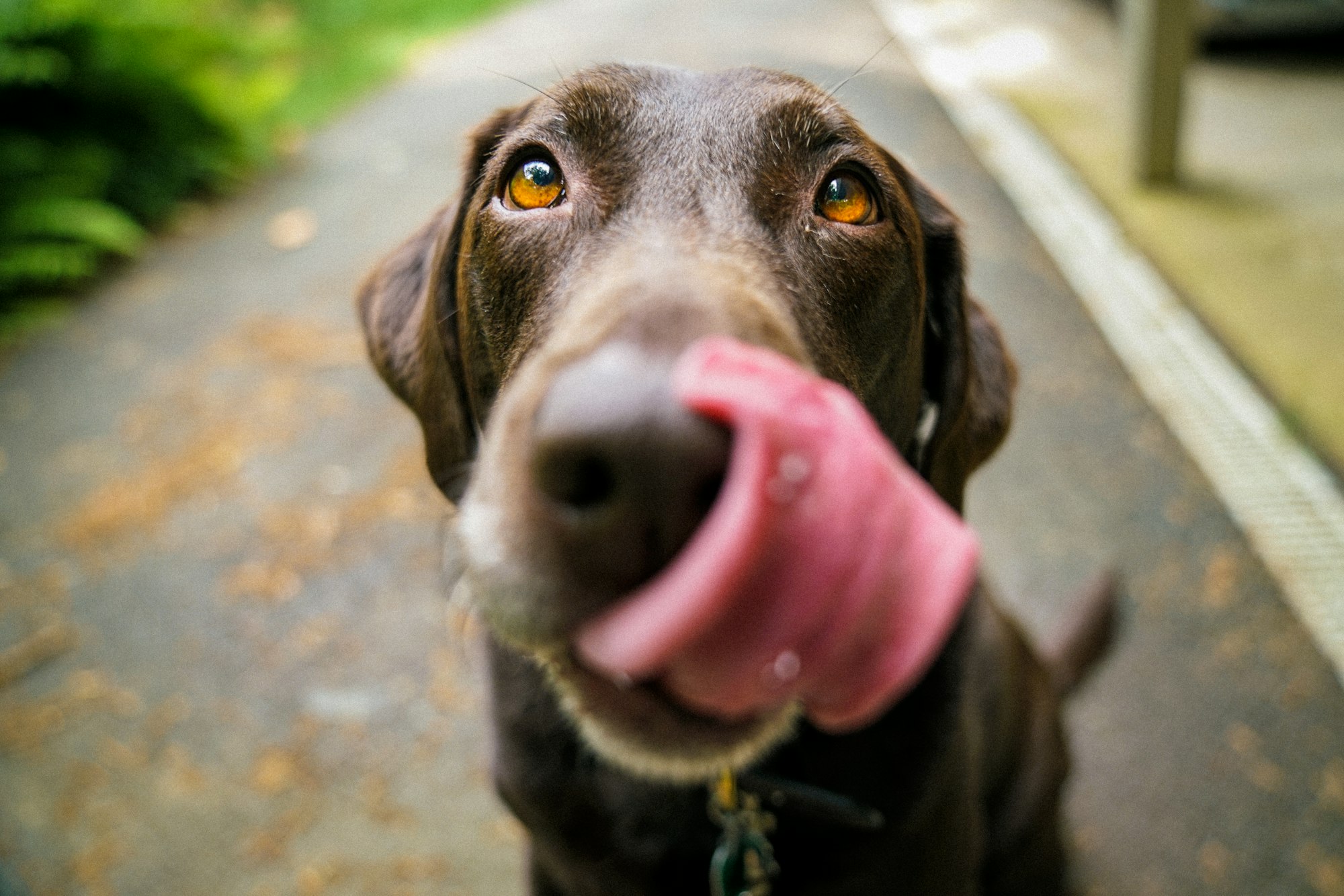Dogs are known for their curious and sometimes quirky behaviors, and one such behavior that can leave dog owners perplexed is their inclination toward eating cat poop. This peculiar habit might seem disgusting and puzzling, but it has underlying reasons rooted in both instinct and environmental factors. In this article, we will explore the various reasons why dogs engage in this behavior and provide insights into how to manage it effectively.
Understanding the Behavior
Instinctive Behavior of Dogs: Dogs have inherited certain behaviors from their ancestors, including the wolf. One of these behaviors is scavenging, which involves searching for and consuming various food sources. This instinctual behavior drives dogs to explore their surroundings and investigate different smells, textures, and tastes, including cat feces.
Role of Scent and Pheromones: Dogs have an extraordinary sense of smell that surpasses that of humans. Cat poop contains scent markers and pheromones that can attract dogs. These scents can communicate a range of information to dogs, such as the presence of another animal in the territory or the availability of a potential food source. This allure can be irresistible to dogs, leading them to indulge in consuming cat feces.
Curiosity and Exploration: Dogs are naturally curious creatures, and their desire to explore their environment often extends to investigating the objects they encounter. Cat feces, with its unique odor and composition, can pique a dog's curiosity. Dogs may perceive it as an intriguing and novel substance worth investigating, which can result in them consuming it.

Nutritional Factors
Nutrient Deficiencies in a Dog's Diet: A dog's diet plays a crucial role in their overall health and well-being. If a dog's diet is lacking in essential nutrients, it can lead to various health issues and behavioral changes. Nutrient deficiencies, such as a shortage of proteins, vitamins, or minerals, may prompt dogs to seek alternative food sources, including cat poop.
It's crucial to ensure that your furry friend receives a well-balanced diet that meets all their nutritional requirements. Consult with a veterinarian to determine the appropriate type and amount of food for your dog based on their age, breed, and specific dietary needs. Providing a nutritionally complete diet can help prevent nutrient deficiencies and reduce the likelihood of coprophagia. Coprophagia refers to the behavior of dogs eating feces, particularly that of cats.
High Protein Content in Cat Poop: Cat poop contains a higher protein content compared to dog feces. Dogs are naturally attracted to the scent and taste of protein, which makes cat poop an appealing treat for some canines. The smell of protein-rich cat poop can trigger a dog's instinctual desire to consume it, especially if their regular diet is lacking in sufficient protein.
However, it's important to note that while cat poop may contain higher protein levels, it is not a healthy or suitable source of nutrition for dogs. Consuming cat poop regularly can lead to imbalances in a dog's diet and potential health issues. It is crucial to address the underlying causes of coprophagia and provide appropriate dietary alternatives to ensure your dog receives the necessary nutrients.
Coprophagia as a Solution: In some cases, dogs may engage in coprophagia as a solution to their perceived nutritional deficiencies. They may instinctively consume cat poop as a way to supplement their diet with additional nutrients. However, this behavior should not be encouraged or considered a long-term solution.
If you suspect that nutrient deficiencies are contributing to your dog's coprophagia, it is essential to consult with a veterinarian. A professional can assess your dog's diet, recommend appropriate dietary changes or supplements, and help address any underlying health concerns. Implementing a balanced and nutritious diet tailored to your dog's specific needs can help eliminate the need for coprophagia as a nutritional solution.
Remember, providing a healthy and well-rounded diet for your furry companion is crucial to their overall health and happiness. By ensuring they receive all the necessary nutrients through their regular diet, you can minimize the likelihood of coprophagia and promote a healthier and more balanced lifestyle for your dog.

Social Behavior
Dogs Imitating Other Dogs: Dogs are highly social animals and often learn behaviors by observing and imitating other dogs. If a dog sees another dog engaging in coprophagia, they may imitate this behavior out of curiosity or a desire to conform to their social group.
Dogs are influenced by the actions and behaviors of their canine companions, and coprophagia can be one of those behaviors that spread through imitation. To address coprophagia stemming from social imitation, it's essential to discourage the behavior and redirect your dog's attention. Focus on positive reinforcement and reward them for engaging in appropriate behaviors instead. Providing alternative activities, such as interactive toys or playtime, can help redirect their attention away from the undesirable behavior.
Seeking Attention or Reaction: Dogs crave attention from their human companions, and sometimes engaging in undesirable behaviors, such as eating cat poop, can be a way for them to seek attention or provoke a reaction. Dogs are perceptive creatures and quickly learn which behaviors will elicit a response from their owners, even if it's negative attention.
To discourage coprophagia driven by attention-seeking, it's essential to provide ample positive reinforcement when your dog displays appropriate behaviors. Give them attention, praise, and rewards when they engage in behaviors that you want to encourage. Simultaneously, avoid reacting strongly or scolding them when they exhibit coprophagic behavior, as this may inadvertently reinforce the behavior by providing the attention they seek.
Establishing Dominance or Hierarchy: In some cases, coprophagia can be related to dominance or hierarchy within a multi-dog household. Dogs may consume cat poop as a way to assert their dominance or establish their rank over other dogs. This behavior can occur when there is competition for resources or a perceived need to control the environment.
To address coprophagia related to dominance or hierarchy, it's crucial to establish clear rules and boundaries within the household. Provide each dog with their own designated space, feeding areas, and toys to minimize competition and potential conflict. Additionally, implementing consistent training and positive reinforcement techniques can help establish a harmonious and balanced social dynamic among your dogs.
Remember, understanding the social motivations behind coprophagia can aid in finding effective solutions. By addressing social influences, providing alternative activities, and promoting positive reinforcement, you can help redirect your dog's behavior and foster a healthier and more desirable social environment for your furry friends.

Medical Reasons
Inflammatory Bowel Disease: Inflammatory bowel disease (IBD) is a chronic condition characterized by inflammation in the digestive tract. Dogs with IBD may experience symptoms such as diarrhea, vomiting, and abdominal discomfort. This inflammation can affect the absorption of nutrients from their food, leading to malnutrition and nutrient deficiencies.
Dogs with IBD may be more prone to coprophagia as they try to alleviate their discomfort or compensate for the poor absorption of nutrients. If you suspect your dog has IBD, it's crucial to consult with a veterinarian for a proper diagnosis and treatment plan. Managing the underlying condition through dietary adjustments, medication, and regular veterinary care can help reduce the occurrence of coprophagia associated with IBD.
Malabsorption Issues: Malabsorption issues occur when a dog's digestive system fails to absorb nutrients properly. These issues can arise from various causes, such as enzyme deficiencies, pancreatic disorders, or damage to the intestinal lining. When a dog cannot effectively absorb nutrients from their food, they may exhibit coprophagia as a way to compensate for the lack of essential nutrients.
If your dog has recurring malabsorption problems, it's essential to work closely with your veterinarian to identify the underlying cause. Diagnostic tests may be necessary to pinpoint the specific issue affecting your dog's digestion. Treatment options can include dietary modifications, enzyme supplements, or medications to address the root cause of the malabsorption and alleviate the need for coprophagia.
Parasitic Infections: Parasitic infections, such as intestinal worms, can disrupt a dog's digestive system and lead to various gastrointestinal issues. Some parasites can cause inflammation, diarrhea, and nutrient malabsorption, which can trigger coprophagia in affected dogs. In some cases, dogs may ingest cat feces infected with parasite eggs, further exacerbating the issue.
If you suspect your dog has a parasitic infection, it's crucial to consult with a veterinarian. A fecal examination can help identify the presence of parasites, and appropriate deworming medications or treatments can be prescribed. Regular parasite prevention and maintaining a clean environment for your pets can help reduce the risk of coprophagia associated with parasitic infections.
Remember, addressing the medical reasons behind coprophagia requires proper veterinary evaluation and treatment. By identifying and managing conditions such as inflammatory bowel disease, malabsorption issues, and parasitic infections, you can help alleviate the underlying causes of coprophagia and improve your dog's overall health and well-being.

Training and Behavioral Solutions
Providing a Balanced Diet: Ensuring that your dog receives a balanced and nutritious diet is essential in addressing coprophagia. Work with your veterinarian to develop a diet plan that meets your dog's specific nutritional needs. A diet rich in high-quality proteins, vitamins, and minerals can help reduce the likelihood of nutrient deficiencies and the desire to consume cat poop.
Supervising and Redirecting Behavior: Supervising your dog and closely monitoring their behavior is crucial in addressing coprophagia. Keep a close eye on your dog during walks and outdoor activities to prevent them from accessing cat litter boxes or areas where cat feces may be present. If you notice your dog showing interest in cat poop, redirect their attention to a more appropriate activity, such as playing with a toy or engaging in obedience training.
Using Positive Reinforcement: Positive reinforcement is a powerful tool for modifying your dog's behavior. When your dog displays appropriate behavior and avoids coprophagia, praise and reward them with treats, affection, and verbal commendations. By associating positive experiences and rewards with desirable behavior, you can reinforce the message that not engaging in coprophagia is preferred.
Conversely, avoid punishment or scolding when your dog exhibits coprophagic behavior, as it can create confusion or anxiety. Positive reinforcement helps create a positive learning environment and encourages your dog to choose alternative behaviors.
Professional Training or Assistance: In some cases, seeking professional training or assistance from a certified dog trainer or animal behaviorist can be beneficial. These experts have the knowledge and experience to address complex behavioral issues like coprophagia. They can develop personalized training plans, offer guidance on redirecting behavior, and provide effective strategies to discourage coprophagia in your dog.
A professional trainer or behaviorist can also evaluate any underlying medical conditions, assess the environment, and tailor training methods to your dog's specific needs. They will work with you to implement appropriate techniques and ensure consistency in addressing coprophagia.
Remember, patience and consistency are key when implementing training and behavioral solutions. By providing a balanced diet, closely supervising your dog, using positive reinforcement, and seeking professional assistance when needed, you can effectively address coprophagia and guide your dog toward more desirable behaviors.
Prevention and Management
Keeping Litter Boxes Inaccessible: One effective way to prevent coprophagia is by ensuring that litter boxes are kept out of your dog's reach. Place litter boxes in areas that are inaccessible to your dog, such as elevated surfaces or rooms with doors that can be closed. This prevents your dog from having the opportunity to indulge in cat feces. If you have multiple cats, consider using baby gates or other barriers to restrict your dog's access to the litter box area.
Cleaning Up Immediately: Promptly cleaning up cat feces is crucial in managing coprophagia. Cats typically bury their waste, making it significant to regularly scoop the litter box and securely dispose of the feces. By promptly removing and disposing of the cat feces, you eliminate the temptation for your dog to consume it. This practice also helps maintain a clean and hygienic environment for your pets and household.
Using Deterrents or Taste Aversion Methods: To discourage coprophagia, you can utilize deterrents or taste aversion methods to make cat feces unappealing to your dog. Various commercial products are available that can be sprayed on or around the litter box to create an unpleasant taste or scent for dogs. These deterrents are formulated to discourage dogs from approaching or consuming cat feces.
Additionally, you can try incorporating natural deterrents, such as bitter apple spray or citrus scents, which many dogs find unpleasant. However, it's critical to ensure that these substances are safe for both your dog and cat. Consult with your veterinarian before using any products to ensure they are appropriate for your specific pets.
Health Risks and Precautions
Potential Health Issues for Dogs: Engaging in coprophagia can pose several health risks for dogs. Consuming cat poop can expose dogs to various pathogens, parasites, and bacteria present in the feces. This can lead to gastrointestinal disturbances, infections, and other health problems. Additionally, the nutritional imbalances caused by coprophagia can result in deficiencies and malnutrition, further compromising a dog's overall health and well-being.
Importance of Regular Vet Check-ups: Regular veterinary check-ups are essential in preventing and addressing health issues associated with coprophagia. Your veterinarian can conduct thorough examinations, perform diagnostic tests if necessary, and provide appropriate treatments. They can also offer guidance on nutrition, behavior modification, and preventive measures to ensure your dog's overall health and minimize the risk of coprophagia-related health problems.
By scheduling routine check-ups, you can stay informed about your dog's health status and address any potential concerns early on. Regular veterinary care plays a vital role in maintaining your pet's well-being and preventing or managing health risks associated with coprophagia.
Preventive Measures for a Healthy Pet: To promote a healthy pet and reduce the risks of coprophagia, it's important to implement preventive measures:
1. Maintain a Clean Environment: Regularly clean up after your cat and promptly dispose of cat feces to eliminate the opportunity for your dog to engage in coprophagia.
2. Provide a Nutritious Diet: Ensure your dog's diet meets their nutritional requirements. Consult with your veterinarian to determine the appropriate type and amount of food for your dog's specific needs.
3. Parasite Prevention: Keep your pets on regular parasite prevention treatments to reduce the risk of parasitic infections. Consult with your veterinarian for appropriate preventive measures based on your geographical location and your pet's lifestyle.
4. Supervise Outdoor Activities: Keep a close eye on your dog during walks and outdoor playtime to prevent them from accessing cat litter boxes or areas where cat feces may be present.
5. Behavioral Training: Implement training techniques to discourage coprophagia and reinforce desirable behaviors. Positive reinforcement and redirection techniques can be effective in modifying your dog's behavior.
6. Provide Mental and Physical Stimulation: Ensure your dog receives adequate mental and physical exercise to prevent boredom and reduce the likelihood of engaging in unwanted behaviors.
By implementing these preventive measures, you can promote a healthy lifestyle for your pet, minimize the risks of coprophagia-related health issues, and enhance their overall well-being.
Conclusion
In conclusion, coprophagia, the act of dogs eating cat poop, can be a perplexing and concerning behavior. Understanding the various factors that contribute to this behavior is essential in finding effective solutions. We explored different aspects related to coprophagia, including nutritional factors, social behavior, medical reasons, training and behavioral solutions, prevention and management, and health risks.
Nutritional factors such as nutrient deficiencies in a dog's diet and the high protein content in cat poop can play a role in coprophagia. Social behavior, such as dogs imitating other dogs or seeking attention, can also contribute to this behavior. Medical reasons, including inflammatory bowel disease, malabsorption issues, and parasitic infections, should be addressed to manage coprophagia effectively.
Training and behavioral solutions involve providing a balanced diet, supervising and redirecting behavior, using positive reinforcement, and seeking professional training or assistance when needed. Prevention and management strategies include keeping litter boxes inaccessible, cleaning up immediately, and using deterrents or taste aversion methods.
Now, let's address some frequently asked questions (FAQs) related to coprophagia.
FAQs
1. Is coprophagia a common behavior in dogs?
Coprophagia is not uncommon in dogs, and many dogs may engage in this behavior at some point. However, it is crucial to address and manage coprophagia to ensure the well-being of your dog.
2. Can coprophagia be harmful to dogs?
Yes, coprophagia can be harmful to dogs. It exposes them to potential pathogens, parasites, and bacteria present in cat feces, increasing the risk of gastrointestinal disturbances, infections, and nutritional imbalances.
3. How can I prevent my dog from eating cat poop?
To prevent your dog from eating cat poop, keep litter boxes inaccessible, clean up promptly, use deterrents or taste aversion methods, and provide appropriate training and behavioral redirection.
4. Should I be concerned if my dog eats cat poop occasionally?
While occasional ingestion of cat poop may not immediately cause harm, it is still important to discourage and manage the behavior. Regular veterinary check-ups can help monitor your dog's health and address any concerns.
5. When should I seek professional help for coprophagia?
If coprophagia persists despite your efforts to manage it or if it is accompanied by other concerning symptoms, it is advisable to consult with a certified dog trainer, animal behaviorist, or veterinarian for professional assistance and guidance.
For more helpful articles about pet-parenting tips, check out the Off Leash blog at TryFi.com.
Want to know more about TryFi.com? The Fi Dog Collar is a GPS tracking collar that not only keeps track of your dog’s location, activity levels, and sleep patterns, but it also alerts you if your dog escapes your backyard. This is the fastest way to find your dog after an escape. Try the Fi Dog Collar today!






